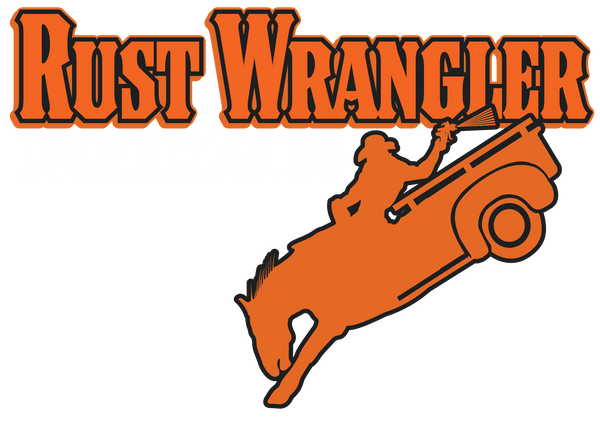Here at Rust Wrangler we are proud to use Protection First Class undercoating on all of our customer's vehicles.
This formula isn't like old-school rubberized or asphalt-based undercoating that hardens, dries out, and eventually cracks over time. Protection First Class (or PFC) doesn't harden, it remains soft and self heals while protecting vehicles from rust and corrosion.
We know...a soft undercoating? You have questions, and we have answers. Here are some of the most frequently asked questions on Protection First Class:
- What makes PFC different from the competition? Most undercoating product on the market today are either petroleum / solvent based or permanent coatings. PFC utilizes a petroleum / solvent free formula. This gives long lasting protection & lubrication without the negatives associated with other undercoating’s. PFC will not evaporate or dry out and crack like petroleum or permanent undercoating products. When compared to Lanolin based products, PFC is far superior due to its increased tackiness and thicker formula. The current Lanolin based products on the market have been around for over 50 years and utilize antiquated formulas that can not keep up with modern roadway treatment processes.
- How often does my vehicle need to be undercoated? The undercoating process is an annual maintenance application. Treatment will easily provide protection through even the harshest of winter conditions. In the protected enclosed areas (doors, frame rails, etc.) a single treatment will provide protection for an indefinite period of time. Vehicles UNDER NORMAL USE, treated with PFC will be protected for 11-13 months. Commercial vehicles and high-mileage drivers may need a touch up or application before 11-13 months (under extreme circumstances).
- Does Protection First Class attract dirt? Since PFC remains wet it will get an initial dusting, it does not continue to attract or compound dirt after the initial dusting like a grease or solvent based product.
- What effects does Protection First Class have on the environment? PFC is non toxic and non hazard material. The product contains no solvents or other related substances & manufactured using an all natural lanolin base.
- Does Protection First Class have harmful effects on plastic or rubber? While PFC doesn't have adverse a effcts on this material; caution is advised around non oil-resistant rubber materials as it may cause swelling.
- Does Protection First Class remove rust? No, Protection First Class is a rust PROTECTANT, it prevents rust and corrosion, it is not a rust converter or remover. It will seal in any existing rust and corrosion, preventing it from spreading.
- Does PFC protect all metals? Yes, it protects all metals from oxidation & corrosion. This includes steel, copper, lead, tin, and zinc. It stops brass and chrome from pitting and aluminum and magnesium from oxidizing.
Want more info on PFC? Check out our blog post: What is PFC + Why Do We Use It?

